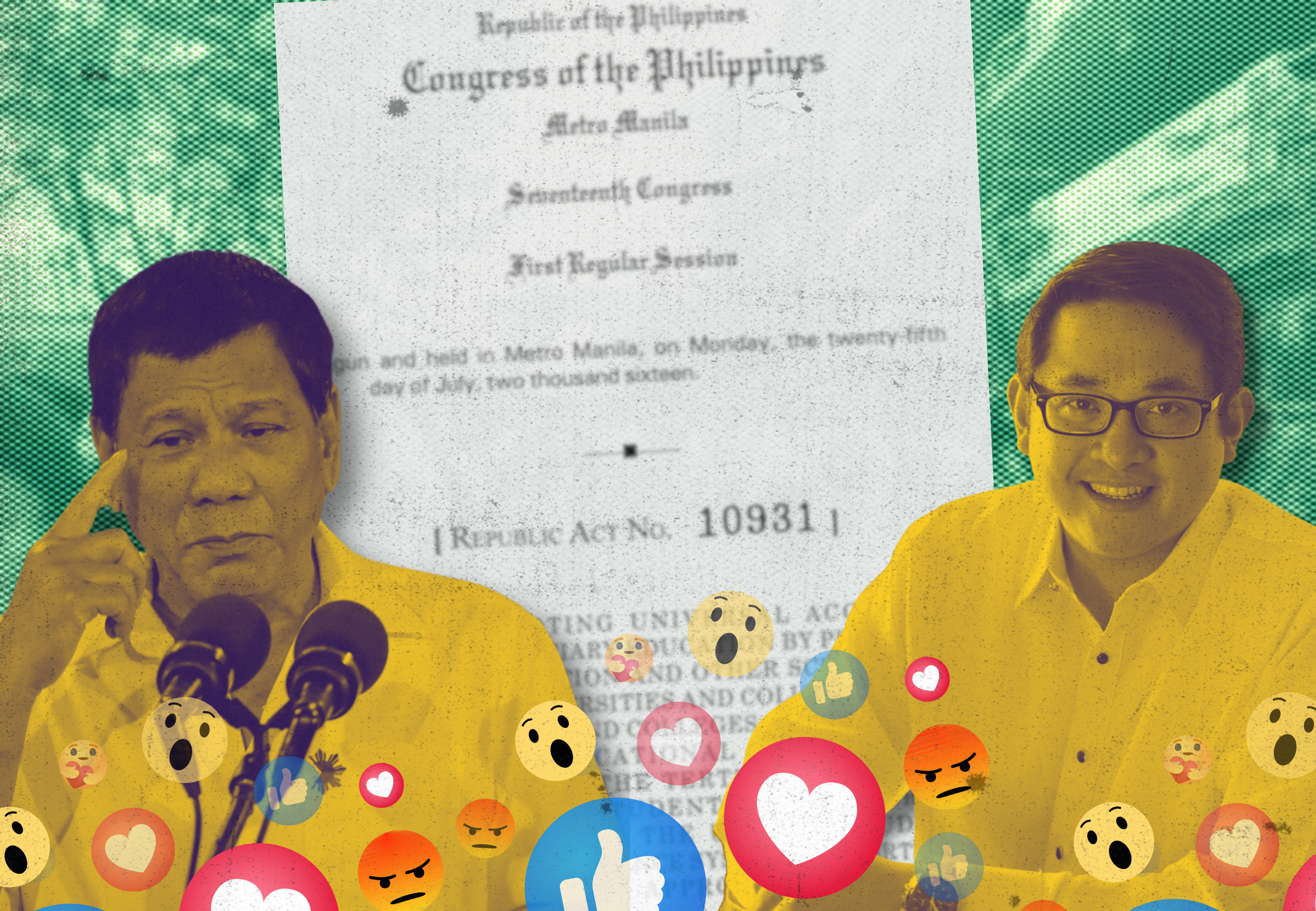Philstar.com, Rappler, and Vera Files exposed the propaganda against Aquino’s senate win

CHEERS TO Philstar.com, Rappler, and Vera Files for spotting the use of social media to spread partisan false propaganda. The three new organizations revealed the network of coordinated Facebook posts to portray former President Rodrigo Duterte as the champion of free tertiary education law.
On May 13, hours after the initial results showed Senator-elect Bam Aquino in second place, a barrage of Facebook posts accused Aquino of taking credit for his benefit, claiming the credit belonged to Duterte for having signed the bill into law.
In 2017, Congress passed the Republic Act 10931, or the Universal Access to Quality Tertiary Education Act, naming Aquino as the primary sponsor and co-author of the law.
Philstar.com, Rappler, and Vera Files posted reports that exposed a social media network that carried disinformation to praise Duterte and to discredit Aquino in their roles to bring about this benefit for Filipino students.
Sophisticated propaganda
The report by Cristina Chi on May 14 showed the results of Philstar.com’s monitoring from May 12 to 14, which showed that at least 45 Facebook pages and users posting similar content discredited Aquino’s contribution in passing RA 10931. Chi pointed out that pro-Duterte posts were carried by hashtags: #TheBestPresident, #PRRD, and #DuterteLegacy.
Chi’s report cited Gian Libot, a disinformation researcher, who observed that the posts were “suspiciously coordinated” as these showed similar patterns and were published within a specific time frame.
Meanwhile, on May 17, Gaby Baizas of Rappler discussed in her report the different forms used by the coordinated Facebook posts in criticizing Aquino while praising Duterte. Baizas noted the following: at least 37 posts on May 13 claimed that Aquino took all the credit for himself; at least eight posts emphasized Duterte’s role in passing the bill and the characteristic appeal to Gen Z and Alpha users.
Busting the lies
Legislation is essentially a collaborative process and requires members of the Senate and House of Representatives to participate in the passage of bills into law. Kiarra Isabel Gorospe and Rhoanne De Guzman of Vera Files traced the history of the law, pointing out the different legislators who contributed to the process of its passage.
Their report noted that Terry Ridon, former Kabataan Party-list representative, first pushed for “universal tuition-free education” in State Universities and Colleges (SUCs) through House Resolution 2135 on May 27, 2015; in the Senate, they named then-Senator Ralph Recto as the principal author of Senate Bill 61, which was the first component bill to be filed in the 17th Congress for the free tuition in SUCs. Aquino co-authored and was a principal sponsor of Senate Bill 177, which was one of the many Senate bills that eventually became RA 10931.
These reports countered the narrative line mobilized on Facebook. Facebook, in particular, has been proven to possess the power to launch or break political fortunes, including election outcomes. Journalists should be alert to the issues that false propaganda can manipulate and misrepresent on social media platforms.
The reports from Philstar.com, Rappler, and Vera Files did well to unmask Facebook posts initiated by a partisan propaganda machine. They prove that journalists, using traditional journalistic tools, can still check the use of these digital platforms, for good or bad. The use of false information to promote partisan interests should be part of political news as these involve tools that project potential candidates — even in between elections.
Leave a Reply